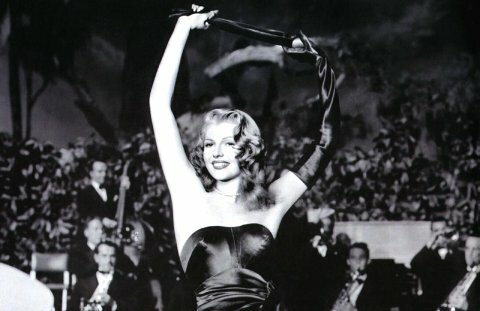Without intending to, I’ve found myself watching a lot of Barbara Stanwyck movies lately, including Double Indemnity (of which I’d like to scribble something one of these days). I believe IMDb shows she appeared in 101 movies and TV shows in her career. She really must have liked working.
I realized I have 18 Stanwyck movies on DVD (only a small number relative to her output). Of those, I’ve watched 15. There are three I’ve yet to see (but plan to): To Please a Lady, Jeopardy and Stella Dallas. Of the 15 watched, I’ve only written about a few, such as this one below. I watched it just last week.
My Reputation (1946)
Directed by Curtis Bernhardt
It seems a strange thing to say but My Reputation suffers from an actor’s performance that is too good.
Barbara Stanwyck portrays Jessica Drummond so well, you almost fume with frustration with her in the movie’s first half.
That’s not actually the case, however.
The problem is the movie and using its first third to create a portrait of a conflicted woman – it’s really a lot of exposition. As the Variety review from 1945 points out, the movie’s other star, George Brent, doesn’t make an appearance for about a half hour or so.
My Reputation is a romantic melodrama and, once the first third is over and certain things are established, entertaining in an average kind of way. Actually, thanks to Stanwyck’s performance, it’s above average. While a romance, it is also about psychological conflict and it’s that element where Stanwyck really excels.
Jessica Drummond is a recent widow who suffers from a domineering mother and friends who are superficial at best. She wants to assert herself as an individual, having been lost for years as secondary to others, but she can’t bring herself to do so. She makes a number of false starts.
This is what I mean about frustration: Stanwyck portrays the conflict so well that, if you are me, while sympathetic you want to tear your hair out because she is so mousy. However, once a new love shows up in the form of George Brent as Major Scott Landis the movie picks up as Stanwyck’s character becomes increasingly stronger.
It’s true the movie is dated, as some have pointed out, but I didn’t find that a particularly difficult barrier to get past, no more so than a historical film or book would be. It’s not a movie for everyone – despite the psychological aspect, it’s essentially a love story, a romantic fantasy.
If you don’t like romances, you probably won’t like this movie. On the other hand, if you want to see yet another brilliant Barbara Stanwyck performance, you really shouldn’t miss this one.
Blogathon Update:
-
Self-Styled Siren has an update on the For the Love of Film (Noir) blogathon, including a specifically for the blogathon. Get ready! It begins Valentine’s Day (February 14) and runs through till February 21. Oddles of bloggers talking about film noir and film preservation.



